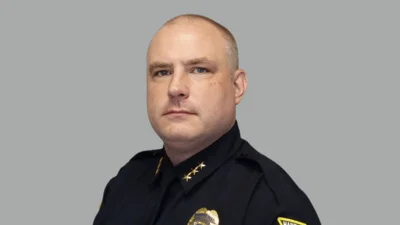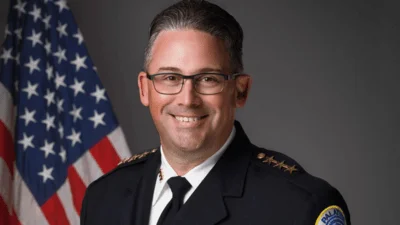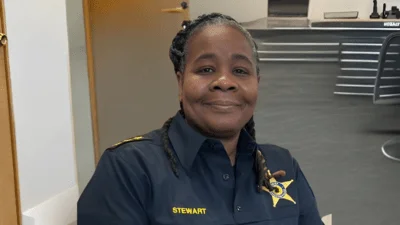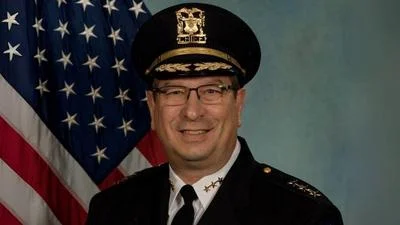Joseph C. Folisi, Committeeman, Schaumburg Township Republican Organization | Facebook / Schaumburg Township Republican Organization (STRO)
Joseph C. Folisi, Committeeman, Schaumburg Township Republican Organization | Facebook / Schaumburg Township Republican Organization (STRO)
As a series of “No Kings” protests prepare to unfold across northern Cook County on Saturday, June 14, local Republican leader Joseph C. Folisi is sounding the alarm over potential public safety risks and the strain on emergency services.
Folisi, a committeeman with the Schaumburg Township Republican Organization, voiced strong concerns, just days after a chaotic anti-ICE (U.S. Immigration and Customs Enforcement) protest in Chicago on June 10 turned violent—resulting in vandalized police vehicles, damaged monuments, assaults on officers and 17 arrests.
Those events have cast a shadow over the suburban protests now scheduled in Schaumburg and nearby communities.
“Police and fire departments will be monitoring the protests, which means some units will not be available for other police and fire matters,” Folisi told North Cook News. “That can endanger the public who are not involved in the protest but need police or fire department help.”
While he praised local first responders and expressed trust in their ability to manage the situation, Folisi emphasized the need for preparation and possible reinforcements.
“I am confident that the police and fire departments in our area—Schaumburg and Hoffman Estates—can handle the situation,” he said. “If not, I am sure they would ask for support.”
The “No Kings” protests are part of a broader national campaign that has stirred controversy due to its confrontational rhetoric and the violent outcomes of some affiliated demonstrations. Saturday’s suburban protests are scheduled throughout the day in Schaumburg, Evanston, Buffalo Grove, Palatine, Des Plaines, Mount Prospect and Arlington Heights.
Folisi was clear in his defense of the right to peaceful assembly but drew a line when it comes to violence and disruption.
“Everyone has a right to peacefully protest and while many of the protests appear to be ‘mostly peaceful’ the police have to deal strongly with the portion that are not ‘mostly peaceful,’” Folisi said. “We cannot allow destruction of property and potential harm to our officers and firefighters and others. Starting fires and damaging buildings are not peaceful acts.”
He also pointed to the broader implications of protest-related street closures, arguing they put lives at risk.
“Blocking streets is totally unacceptable as it blocks ambulances, fire trucks and folks needing to get to work or school to pick up their kids,” Folisi said.
Authorities have not disclosed the full scope of security plans, but law enforcement agencies across the suburbs are expected to increase patrols and coordinate responses.
Folisi’s comments reflect broader concerns among suburban leaders and residents, many of whom recall the widespread unrest of 2020 that left a trail of damage across cities nationwide.
In Chicago alone those riots–which started off as street protests–led to 15 deaths and injuries to over 284 police officers. More than 1,112 individuals were arrested in connection with the riots. Property damage from the events was extensive, with losses exceeding $66 million.






 Alerts Sign-up
Alerts Sign-up